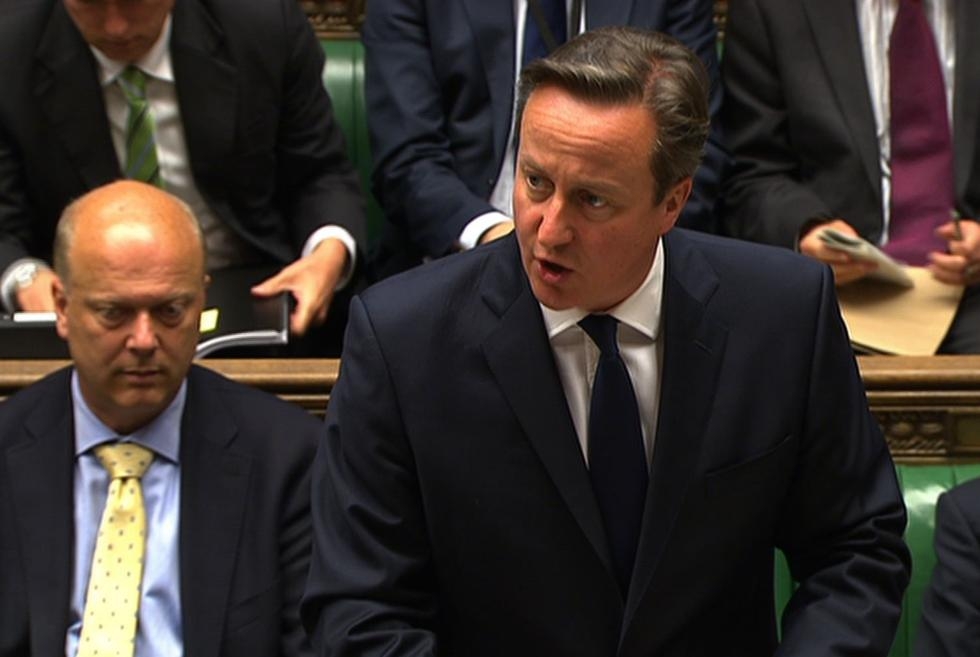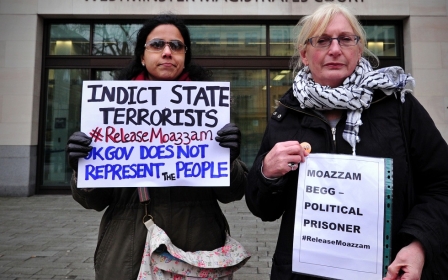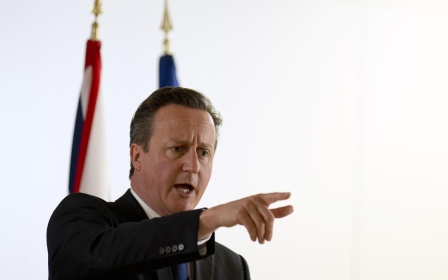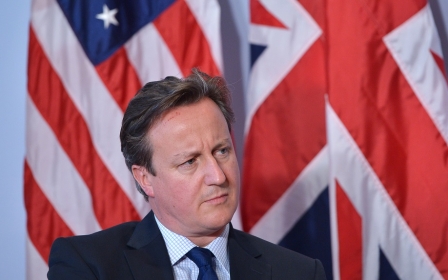Cameron will not engage with the only people able to stop the IS narrative

In 2010, when street-vendor Tarek Bouazizi self-immolated on a Tunis street protesting his abuse by police he couldn’t have known that he had ignited the “Arab spring”, which would remove the old dictators and, ultimately, lead to the rise of IS, that in turn would direct attacks on tourists in his homeland.
Detailing his intended reaction to the shootings in Tunisia that killed more than 30 British citizens, Prime Minister David Cameron asserted in the Telegraph:
“…ours must be a full-spectrum response – a response at home and abroad; in the immediate aftermath and far into the future.”
This militaristic language, borrowed straight from the US Department of Defence term “full-spectrum dominance” is bold in its aims, unapologetic of its consequences.
No one can dispute the Prime Minister’s assertion that the killings were barbaric. But what was the motive – the mens rea behind these acts? Was it solely down to a twisted understanding of the Islamic concept of caliphate and jihad? Certainly that expounds the claim to moral justification behind evidently immoral acts. But if we want to meaningfully work to prevent such things in future we need to ask why, not just how.
Shortly after World War I much of the Ottoman Caliphate was dismembered and occupied by Britain. Several client Arab states were created, one of them Iraq. In 1920, resentful locals rose up against their British occupiers. The uprising was quelled, but only after a fledgling British Royal Air Force used poisonous gas and indiscriminate airpower against its victims. The die was cast in Iraqi blood.
In 1991, Britain played a major role in Operation Desert Storm, the US-led assault during which more bombs were dropped on Iraq than the whole of World War II.
In 2003, as part of another US-led coalition, Britain invaded Iraq on the basis of torture evidence and fabricated intelligence. Even as US President George Bush claimed “mission accomplished” Iraqi resistance in the form of localised militias, Baathists and incarnations of Al-Qaeda found unity of purpose not just in battle but in the infamous torture centres of Abu Ghraib and Camp Bucca. Here, the once diametrically opposed Baathists [secular Arab socialists] and Islamic fighters met and exchanged ideas that were to erupt in the form of IS.
At the end of British combat operations in 2009, Prime Minster Gordon Brown said:
"Today Iraq is a success story. We owe much of that to the efforts of British troops…Britain can be proud of our legacy that we leave there."
The coalition left Nouri al-Maliki, a pro-Iranian Shia, in power. Five years later, following a series of humiliating defeats against Maliki’s forces, IS declared the return of the caliphate.
When Britain joined yet another US-led coalition to bomb IS in Iraq and Syria last year, it did so in the knowledge that British citizens were in peril and held hostage. European nations and Turkey successfully negotiated the release of all their hostages. However, Britain and the US chose to increase the bombing campaign against IS instead of negotiate. Consequently, the hostages were executed. Bombing IS, without pause, it seems, was more essential than saving American and British citizens.
Britain has already carried out 300 airstrikes on targets in Syria and Iraq; the US, 6,000. Cameron explained to the BBC how “British aircraft are already delivering the second largest number of airstrikes over Iraq, where ISIL (IS) has taken hold”. If history has taught this country anything it is that more bombing will produce more insecurity – for everyone. Cameron plans an increase.
Cameron told BBC Radio 4 that IS as an existential threat to the UK, which is the “struggle of our generation”. But Britain is threatened by IS because of its sordid history it in the region. IS, however, poses a far greater threat to the Arab and Muslim world.
Ahrar al-Sham - part of the Islamic Front coalition - and Al-Qaeda’s Al Nusra Front are the largest, most effective opposition forces in Syria. They have been at the forefront in the fight against IS. Thousands of their members have been killed in battle, tortured, beheaded and crucified. Despite Al Nusra’s confirmation that Syria would not be used as a launchpad for attacks on the West both groups have been bombed by coalition forces.
Arguably the most credible voices against IS have been Islamic clerics traditionally associated with Al-Qaeda. These include Jordanian scholars Abu Muhammad al-Maqdisi and Abu Qatada. Cameron’s government fought very hard to deport the latter from Britain where he had been imprisoned on the basis of secret evidence, without charge, for over a decade.
In the end, Abu Qatada opted to return to Jordan, of his own accord, where he was acquitted of terrorism charges against him. During and after his imprisonment in the UK and Jordan Abu Qatada made repeated calls for the release of British aid workers and journalists held by militant groups – including IS. He declared their consequent murders unlawful and subsequently issued scathing fatwa [religious edicts] denouncing IS:
"This group [IS] does not have the authority to rule all Muslims and their declaration [the caliphate] applies to no-one but themselves. Its threats to kill opponents, sidelining of other groups and violent way of fighting opponents constitute a great sin, reflecting the reality of the group."
Cameron must be wondering how many young Britons would have joined IS if Abu Qatada made these statements from the UK instead of Jordan?
Britain already has more anti-terrorism laws and measures in operation than at any other time in her history. Cameron is going to support the revival of previously failed attempts to pass the “snoopers charter” and the new extremism bill. Following the attacks in Tunisia he’s likely to succeed.
In his full-spectrum plan to tackle IS, Cameron wants to support weak governments against the threat of terrorism. Islam had been suppressed for decades in Tunisia. It is no surprise extremism is rife there or that the largest numbers of foreigners with IS are Tunisians. Cameron has the duty to protect his citizens and work with others in trying to achieve that, but he would do well to note that it was authoritarian Western-backed governments that, in the name of fighting terrorism, harassed, imprisoned and tortured their own people until they finally had enough.
But why did Seifeddine Rezguie kill 38 innocent tourists? Warped as his ideas must have been, he saw the tourists as representatives of Britain. Britain that had wanted to destroy the caliphate past, and, the caliphate present. The only ones who can successfully challenge the IS narrative, however, are the only ones the government will not engage with.
- Moazzam Begg is a former Guantanamo Bay detainee and currently the director of outreach for UK-based campaigning organisation CAGE.
The views expressed in this article belong to the author and do not necessarily reflect the editorial policy of Middle East Eye.
Photo: British Prime Minister David Cameron (C) gives a statement over the situation in Tunisia to the House of Commons in London. (AFP)
Middle East Eye propose une couverture et une analyse indépendantes et incomparables du Moyen-Orient, de l’Afrique du Nord et d’autres régions du monde. Pour en savoir plus sur la reprise de ce contenu et les frais qui s’appliquent, veuillez remplir ce formulaire [en anglais]. Pour en savoir plus sur MEE, cliquez ici [en anglais].





